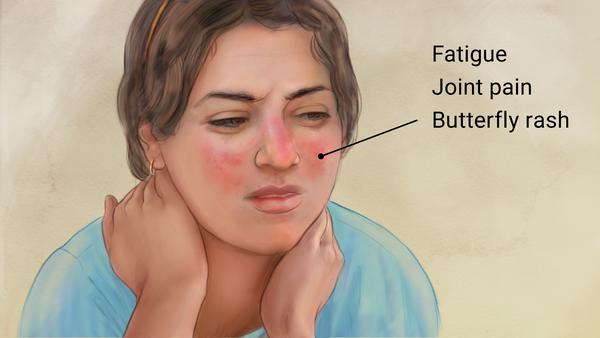현재 위치:홈 > 뉴스현황 > Press Events > Multiethnic Lupus St...
저자: 업로드:2017-07-20 조회수:
Lupus is a chronic inflammatory disease that occurs when the body's immune system attacks the tissues and organs. Inflammation caused by lupus can affect many different body systems, including the joints, skin, kidneys, blood cells, brain, heart and lungs.
Autoimmune disorders
continue to be enigmatic for the scientific community, as researchers are still
unsure as to how these complex disorders are initiated. Moreover, these
immunological maladies preferentially affect women with, for instance, nine out
of ten systemic lupus erythematosus (SLE) cases being female. As most
autoimmune disorders can take an average of up to 5 years to diagnose, combined
with the fact that there are no cures for the vast majority of diseases in this
category, researchers are constantly trying to find better diagnostic measures
and ultimately the root cause.
Now an international team of scientists at Wake Forest Baptist Medical Center, Oklahoma Medical Research Foundation, King's College of London, and Genentech have just published data from a new study that analyzed genetic data from 27,574 individuals of European, African American, and Hispanic ancestry, identifying a large number of new genetic markers that predispose individuals to SLE. Findings from the new study, published recently in Nature Communications in an article entitled “Transancestral Mapping and Genetic Load in Systemic Lupus Erythematosus”, are important as SLE is also two to three times more common among African-American and Hispanic women.

"This study is the
largest multiethnic lupus genetics study to date and allowed us to identify
many new genetic markers, some of which are specific to individual ethnic
groups and others that are shared across ethnicities," noted lead study
investigator Carl Langefeld, Ph.D., professor of biostatistical sciences at Wake
Forest School of Medicine. "With this information, we can begin to better
understand the differences in the rates and severity of disease across ethnic
groups.
Autoimmune diseases strike one in 15 Americans, are among the top 10 causes of death in women, and cost an estimated $100 billion a year in medical care. SLE is the most common type of lupus and is a prototypical autoimmune disease. SLE can affect many parts of the body, including joints, skin, kidney, heart, lungs, blood vessels, and brain. Current treatments are aimed at reducing the inflammatory immune response and/or suppressing much of immune system functions. The research team is optimistic that their findings will foster new research endeavors that could lead to more specific therapeutic compounds.